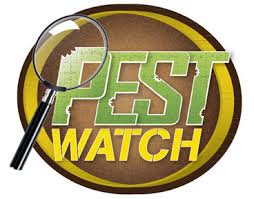
The USDA's Animal and Plant Health Inspection Service (USDA-APHIS) advises those who are planning to hike or camp this Labor Day to remember a few simple actions to help stop the spread of 15 invasive, Hungry Pests. These non-native insects, animals, plants and diseases devastate America's crops, trees and plants, and are mostly spread by humans. Because they don't have natural predators in place, they can spread unchecked, displacing native species while destroying forests, gardens/landscapes and other ecosystems. The surge in human outdoor activity from summer to fall is a particularly vulnerable time for spreading Hungry Pests.
"Most people are surprised to learn that engaging in outdoor activities, such as hiking, fishing or camping can unintentionally harm the environment by spreading invasive pests," said Osama El-Lissy, deputy administrator of USDA-APHIS' Plant Protection and Quarantine program. "Invasive pests can not only be transferred from a campground to one's home, but can also be spread from home to campground. Unfortunately, a new area can be infested by just one person unknowingly transporting a pest on their gear or inside a log of untreated firewood. So whether you are going to or leaving from your outdoor adventure, remember to follow some easy steps to reduce the possibility of spreading these pests."
Here are ways to help:
Don't move untreated firewood from one place to another, as invasive pests could be hidden inside.Wash outdoor gear, and tires and wheel wells free of dirt and insects/eggs before going on and leaving from fishing, hunting or camping trips.Clean lawn furniture and other outdoor items before moving them to another location.Don't bring fresh fruits, vegetables or plants out of quarantined areas unless agricultural inspectors have cleared them beforehand.If crossing the border, declare all produce, plants and plant-based items to customs officials.
Additional ways to help stop the spread and report signs of invasive pests can be found at www.HungryPests.com. The website includes photos and descriptions of the 15 Hungry Pests, which include the highly destructive emerald ash borer, Asian longhorned beetle, gypsy moth, European grapevine moth and fire ant. There is also an online tracker that shows where federal quarantines are located. The public is also invited to join the conversation on Facebook at www.facebook.com/hungrypests.